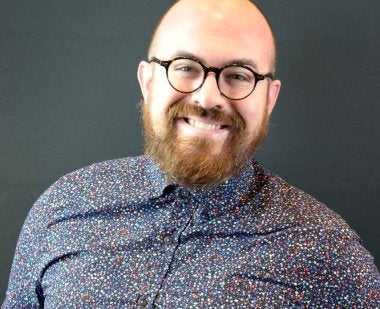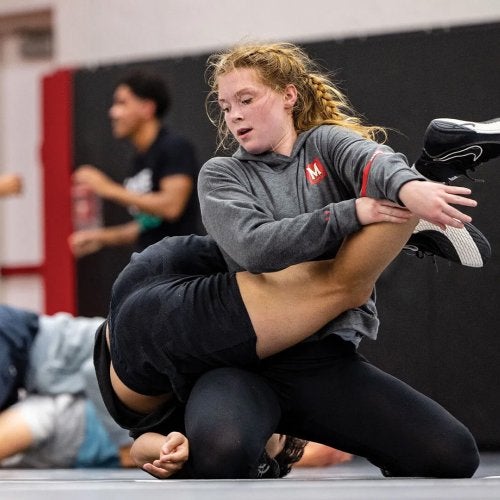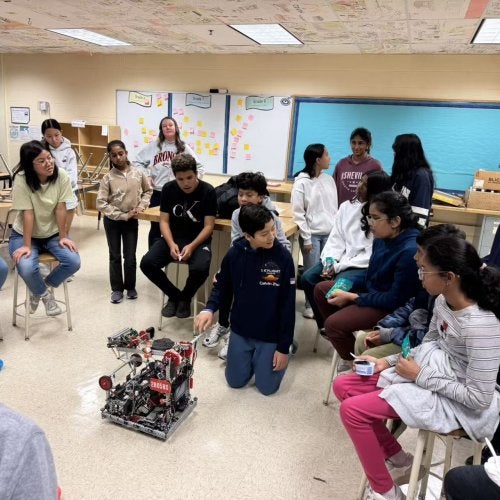
Michael A. Goodman is a doctoral student in Student Affairs in the Department of Counseling, Higher Education, and Special Education who is expected to graduate by May 2020. Goodman serves as the president of the University of Maryland’s Graduate Student Government and also works as a graduate assistant in the Undergraduate Student Legal Aid Office. In addition to his work and involvement on campus, he works part-time at the National Association of Independent Schools, where he runs an assessment on inclusivity and multiculturalism.
Why did you decide to pursue your graduate degree at the University of Maryland?
The Student Affairs program at the University of Maryland has some of the most incredible faculty members in my field. In addition to being a well-known program for student affairs scholars and practitioners, there are thousands of alumni out there who also went to the University of Maryland and are doing really important work in my field. My faculty support my interest in both scholarship and practice, and have been really essential in helping me better understand what role I play now, and will play later, in this field. Outside of the program and institution, I wanted to be near Washington, D.C., and value the unique opportunities that exist as a result of our close proximity to the city.
What person or experience has had the greatest impact on your studies at Maryland so far?
Hands down, my advisor, Dr. Kimberly Griffin, has had the greatest impact on my time at the University of Maryland. Dr. Griffin is someone who cares deeply about students, and works very hard to make sure we feel supported and encouraged during this program. She is also a phenomenal teacher. She flips instruction on its head, bringing in many methods for teaching, keeping us on our toes during class, and leaving us with new and enhanced knowledge. She gives loads of feedback and wants you to become a better thinker and writer. She was also a big reason I came to the University of Maryland, and I feel so lucky that I get to continue learning from her and working with her.
You recently became the president of Graduate Student Government. Could you talk about your experience in GSG and what you hope to do as president?
I ran for Graduate Student Government (GSG) President because I believe graduate students at the University of Maryland should have a voice among other student leaders and university administrators. As president, I hope to increase transparency between the GSG and the student body, as well as work with students from various colleges to elevate stories of inequity and bias.
There are many graduate students at the University of Maryland who are not having a great experience, who are being taken advantage of by advisors or faculty, or who are feeling like the cost of living in this area is so great that they are unable to pay for food or housing in a reasonable way. I want to advocate for those students. I want to work to make this place one where students feel stable both at school and in their personal lives. I want to work with deans of the colleges to address incidents where students feel unsafe or unsupported. Finally, I also plan to work with other graduate student leaders as we anticipate whatever future legislation may be coming down the pipeline—much like the tax bill—and the possible threats ahead to graduate education.
What is the biggest issue or challenge in your field, as you see it?
In student affairs, specifically, I think one of the biggest challenges centers around student crises and student well-being in higher education. For many schools, counseling centers are understaffed (need for more counseling services), residence hall staff are dealing with incidents at higher levels (drugs/alcohol, sexual assault and gender-based violence, hate/bias-related), and states and schools are debating physical and emotional safety (open carry laws, free speech standards). The role of student affairs administrators and senior student affairs officers is increasingly complex and evolving within each of these issue areas.
Any other related experience that played a role in your academic and/or career path?
I have worked in student affairs in various capacities, for several years, and after a while, I felt it was time to go back to school and work toward a Ph.D. I also was curious about different research topics and felt that it was important to also do research that contributed to my field.
What do you hope to do after graduation?
I would like to be a university administrator someday, in some capacity that allows me to still have direct contact with students. I am also interested in doing student services work at an education association, working alongside schools or communities that are seeking to enhance how they engage with students outside of the classroom (from K-12 to higher and graduate education).


